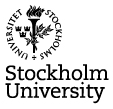Dr. J. Marty Anderies on natural resource management
Dr. J. Marty Anderies will on Wednesday 4 October 2006 hold the seminar "Living in an Uncertain World: Robustness-Vulnerability Trade-offs in Natural Resource Management".
Unfortunately, these so-called robust policies typically cannot address all types of parametric uncertainty and must somehow deal with fundamental performance-robustness and robustness-vulnerability trade-offs.
This talk will present an analysis of such trade-offs for a large class of policies for the simple Gordon-Schaefer fishery model.
Several general insights that emerge from the analysis will be discussed:
(1) management based on classical optimal control policies can be very sensitive to parametric uncertainty,
(2) even mild robustness properties are difficult to achieve in general, and
(3) increasing robustness to some parameters (e.g. ~biological parameters) results in decreased robustness with respect to others (e.g. ~economic parameters).
Finally, I will discuss how these insights can be used to develop better resource management policy under uncertainty.
About Dr. Anderies
Dr. J. Marty Anderies is an Assistant Professor with a joint appointment in the School of Human Evolution and Social Change and School of Sustainability at Arizona State University, Tempe, AZ. Dr. Anderies received his Ph.D. in Mathematics from The University of British Columbia.
His current research interests focus on robust management and robust institutional design for coupled social-ecological systems. He studies a range of archaeological, historical, and present-day examples of social-ecological systems using formal mathematical modeling and analysis to develop an understanding of ecological, behavioral, social, and institutional factors that generate vulnerability and/or enhance resilience and robustness in social-ecological systems.
Other areas of interest include economic growth, demographics, and the environment and mathematical modeling in community ecology.
Time and place
Place: Linné Hall, the Royal Swedish Academy of Sciences, Lilla Frescativägen 4, Stockholm
Vacancies | Contact | Environmental policy | Cookies
Stockholm Resilience Centre
Stockholm University, Kräftriket 2B | Phone: +46 8 674 70 70 | info@stockholmresilience.su.se
Organisation number: 202100-3062 | VAT No: SE202100306201


